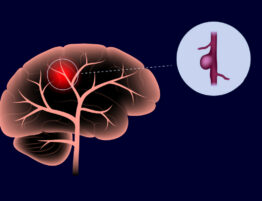The human body can fully function and exist only when it harmoniously interacts with the diverse microbial world. In some situations, it becomes a lifesaver for a person and, in others, a threat to life in terms of autoimmune diseases. An autoimmune disease is a condition in which your immune system mistakenly attacks your body. A healthy immune system is an honest judge that can truly assess the target of a germ in contact with a person.
Signs that your immune system is weakened. The state of the immune system largely depends on the functioning of the human body and some external influences from the environment. These factors can have positive and negative effects on the capabilities of the immune system. In a negative case, immunity decreases, and the following symptoms appear:
- Poor wound healing is observed.
- ARVI diseases with a severe and prolonged course.
- With reduced immunity, viral and colds occur more often than usual (more than twice a year for adults and more than four times for children).
- The appearance of weakness, pallor of the skin, lack of active resistance in relation to external factors.
- Detection of tuberculous disease (any form).
- With reduced immunity, the presence of abscesses on the skin is observed.
- Fungus on nails, skin, or mucous membranes, such as candidiasis or onychomycosis.
- Recurrent surgical infection.
- Diseases of the sinuses and respiratory tract, and urinary system are resistant to treatment.
- Enlarged lymph nodes.
Each of these signs is considered a consequence of lowered immunity. Another sign is an imbalance in the immune system. It can manifest itself in the form of allergies or autoimmune diseases.
Causes of a weakened immune system
Since the immune system is a complex structure, there are many possible reasons for its decline.
| Accompanying illnesses |
|
| Lifestyle |
|
Active and passive immune system
There are cases when even ideal immunity cannot resist pathogenic microorganisms, which have high virulent characteristics; this can be the presence of whooping cough, diphtheria, polio, hepatitis, tetanus, and other diseases. For these reasons, it is necessary to prepare the human body for possible contact with pathogens, which occurs through vaccination. Specialists can do vaccination in two ways: passive and active.
- Active immunity occurs when our own immune system is responsible for protecting us from a pathogen. Active immunity can be introduced with a vaccine. This is a preparation that contains weakened, live, and killed microorganisms. In addition, these can be individual elements, for example, antigens, proteins. The drug is administered at the time of absolute well-being in the human body. This becomes the reason for producing certain antibodies and the formation of strong immunity if secondary contact with pathogens is observed.
- Passive immunity occurs when we are protected from a pathogen by immunity gained from someone else. Passive immunity can only be introduced thanks to special immune sera. These are drugs that contain ready-made antibodies designed against pathogens, as well as their toxins. The use of such drugs is usually required if signs of certain diseases are found. Only in this case, such a method can save the patient’s life.
The main task of humoral factors is the recognition, structuring, and inactivation of pathogens and their elements. Then they are presented to T = cells, which are responsible for the cells and the final inactivation of the pathogen. The mediator, in this case, is the complement system.
Types of Immune system disorders
Immune diseases are usually divided into three groups according to the type of impairment; immunity can function excessively, insufficiently, or atypically (autoimmune diseases).
Allergies. The most common of all immune system disorders is allergy. Its development is based on incorrect identification of substances by cells of the immune system. At the first contact with one or another component, the immune system perceives it as dangerous, which further leads to the development of an allergic reaction of varying severity. And although such an immune response can form to any substance, doctors distinguish a group of potential allergens:
- Some food products are milk, eggs, citrus fruits, nuts, bright berries, seafood.
- Plant pollen.
- Wool, feathers.
- Household chemicals and latex.
- Dust.
- Mushroom spores.
The exact cause of the allergy has not been clarified, but among the factors that provoke it, doctors call the following:
- Heredity.
- Prolonged contact with potentially allergenic components (development of sensitization).
- Stress.
- Reduced immunity.
Allergy often manifests itself in childhood, but under unfavorable conditions, it can also develop in adults.
Immunodeficiencies. Insufficient functioning of the immune system includes both congenital and acquired diseases. Genetically determined immunodeficiencies are often diagnosed at an early age, sometimes in the first weeks of life. Since diseases are associated with defects in the immune system itself, they are challenging to treat.
Secondary immune diseases of this type can develop under the influence of such factors:
- Viral and bacterial infections (rubella, hepatitis, measles, staphylococcus, etc.).
- Helminthic invasions.
- The simplest lamblia, chlamydia and others.
- Persistent infections (AIDS, Epstein-Barr virus, cytomegalovirus).
- Intoxication.
- Eating disorders.
Against the background of immunodeficiencies, health deteriorates significantly, any minor infection can cause complications, and in some cases even cause death, the risk of developing malignant tumors increases.
Immune system diseases
You can observe an imbalance of immunity in various somatic pathologies, which can be called secondary. About primary immunodeficiency, it occurs in diseases of the immune organs and other immune system attacks. For example:
- Combined immunodeficiency. Among them are immunodeficiency, which is accompanied by eczema of the skin and bleeding (Wiskott-Aldrich disease), as well as a syndrome of defective lymphocytes.
- The problem of humoral immunity. One of the most common syndromes is Bruton’s syndrome, which implies a lack of immunoglobulins of all types and an increased level of some abnormal antibodies as well as a selective lack of immunoglobulin.
- Gitlin’s syndrome. It implies a decrease in the level of the immune system, accompanied by a disruption in the functioning of the body and its growth.
- Breakdown of cell immunity. This is an increase in sensitivity and susceptibility to thymic hypoplasia and some types of congenital fermentopathy.
- Neutropenia is acquired or hereditary. It includes cyclic neutropenia, Kostman agranulocytosis. Together with these diseases, neutrophilic blood leukocytes are completely absent or reach a critical level.
- Louis Bar disease. This genetic disease manifests itself as a moderate imbalance in immunity or abnormal development of blood vessels.
In diseases of a non-hereditary type, secondary immunodeficiencies can be found.
- For example, AIDS, which stands for acquired immunodeficiency syndrome. It intentionally produces immune system attacks on immune cells such as killer T cells. Another example of immunodeficiency can be the consequences of onco hematological diseases.
- It is also worth taking into account the imbalance of the immune system if it has become a consequence of autoimmune diseases about its own tissues. Such an outcome is likely if a person has lupus erythematosus, allergic reactions, ulcerative colitis, rheumatoid arthritis, atopic dermatitis, glomerulonephritis, Crohn’s disease, etc. Such diseases are usually not accompanied by a decrease in immunity; however, if treatment occurs over a long period, then the immunity of the human body is depleted.
Symptoms and causes of autoimmune diseases
An autoimmune response targets specific organs such as the thyroid, stomach, pancreas, and adrenal glands. Diseases not specific to organs are rheumatism, lupus, and scleroderma. They are characterized by an autoimmune response to antigens in various tissues.
Ulcerative colitis and possibly multiple sclerosis are considered mixed forms. The formation of antibodies precedes any autoimmune disease to the body’s tissues, which form immune complexes as part of the immune response. As a result of the deposition of these immune complexes in individual organs or tissues, symptoms of an autoimmune reaction occur.
Common complaints include:
- increased body temperature;
- decreased appetite;
- loss of body weight;
- soreness of the joints;
- increased fatigue and weakness;
- excessive sweating and shortness of breath;
- violations of the skin.
Vitiligo, rash, limited movement, and joint pain are common symptoms. Many autoimmune diseases are accompanied by damage to the cardiovascular system.
The symptoms of individual autoimmune diseases vary and depend on the organ or tissue affected. For example, Hashimoto’s thyroiditis is characterized by symptoms of autoimmune thyroid inflammation. In this case, hypothyroidism occurs as a result of fibrosis until the complete loss of the thyroid parenchyma and a diffuse struma without nodes develops. Multiple sclerosis is based on auto sensitization to antigens of the meninges of nerve cells. Often starts with paralysis or numbness; the condition usually proceeds in waves.
Autoimmune diseases and its complications
These immune system diseases are characterized by the reaction that develops not to foreign elements but its cells and tissues, mistakenly identified as dangerous. As a result of such processes, extremely serious conditions develop. In particular, such diseases include:
- Systemic lupus erythematosus.
- Multiple sclerosis.
- Crohn’s disease.
- Rheumatoid arthritis.
The reasons for the development of autoimmune diseases often remain unclear. Doctors note that in some cases, they can occur against the background of oncology or prolonged inflammatory processes (often caused by a virus). Therefore, chronic diseases require mandatory treatment and control to prevent the development of such complications.
An autoimmune response targets specific organs such as the thyroid, stomach, pancreas, and adrenal glands. Diseases not specific to organs are rheumatism, lupus, and scleroderma. They are characterized by an autoimmune response to antigens in various tissues.
Ulcerative colitis and possibly multiple sclerosis are considered mixed forms. The formation of antibodies precedes any autoimmune disease to the body’s tissues, which form immune complexes as part of the immune response. As a result of the deposition of these immune complexes in individual organs or tissues, symptoms of an autoimmune reaction occur.
Common complaints include:
- increased body temperature;
- decreased appetite;
- loss of body weight;
- soreness of the joints;
- increased fatigue and weakness;
- excessive sweating and shortness of breath;
- violations of the skin.
How to strengthen your immune system
If a person has a reduced immunity, it is necessary to undertake treatment at the initial stage. It is not at all easy to help the immune system, but it is possible. In this case, you need to use an integrated approach since any little thing is really important. What to do:
- Normalize your lifestyle, balance your diet, and create a sleep pattern. It is relevant if the lifestyle has caused a decrease in immunity.
- Get rid of bad habits.
- Carry out the correct treatment of diseases.
- Get rid of the reasons that caused the drop in immunity.
- Strictly follow the rules that were given by experts when prescribing medication for immune imbalance.
- Take medicinal plants that belong to the group of immunomodulators. Such plants include plantain, echinacea, and beekeeping products.
- Take vitamin complexes.
Bathhouse procedure. To maintain immunity, you can also go to the bathhouse. However, a visit to the bathhouse should only be done by those with no contraindications for high temperatures. The healing effect is the stimulation of blood circulation throughout the body. This leads to getting rid of chronic infection factors, removes toxic products, accelerates the synthesis of immunoglobulins.
Hardening. Another way to increase immunity is hardening. However, here you need to know when to stop. Hardening should be phased; otherwise, it can lead to the opposite consequences. It cannot be hardened starting from low temperatures. The temperature should be lowered gradually with the help of air baths and water procedures.
Medication. It is another way. The therapy is directed to the place where the breakdown is. It is necessary to strictly control the intake of medications so that there is no risk of developing imbalance and autoimmune aggression.
Immunity must be increased after taking antibiotics if there has been a long course of treatment. To do this, you need to follow doctors’ recommendations, a healthy lifestyle, take probiotics, vitamins, and enhanced nutrition.
FAQ
- What is an immune system disease?
Immune diseases are a whole category of pathologies in which disorders in the functioning of the human immune system occur. With them, pronounced changes in the action of effective immunity mechanisms are observed, due to which the state of health deteriorates.
- What are the cells of the immune system of the human body?
The central organs of the immune system include the bone marrow and thymus. In the bone marrow, B-lymphocytes are formed from its stem cells. In the thymus, T-lymphocytes are differentiated from the stem cells of the bone marrow that entered this organ.
- What is the name of a disease that affects the immune system?
Autoimmune diseases are diseases associated with a dysfunction of the human immune system, which begins to perceive its own tissues as foreign and damage them.
- What organs constitute the immune system?
The organs of the immune system are central and peripheral. The former include the thymus and red bone marrow, peripheral spleen, lymph nodes, and lymphoid tissue.
- What are the signs of a weakened immune system?
The first sign will be poor and long wound healing, frequent soreness and colds, and abscesses may appear on the skin. If you feel weak, then immediately consult a doctor to make the correct diagnosis.
- How to treat the immune system diseases?
- Take medicinal plants that belong to the group of immunomodulators. Such plants include plantain, echinacea, and beekeeping products.
- Take vitamin complexes.
- Normalize your lifestyle, balance your diet, and create a sleep pattern. It is relevant if the lifestyle has caused a decrease in immunity.
- Get rid of bad habits.
- Get rid of the reasons that caused the drop in immunity.













Please, leave your review
2 Comments
Sarai Bean
16/08/2023
Give a round of applause in the comments to show your appreciation!
Leighton O. O. Tate
02/09/2023
Your words have resonated with us and we can’t wait to read more of your amazing content. Thank you for sharing your expertise and passion with the world.
Write a comment: